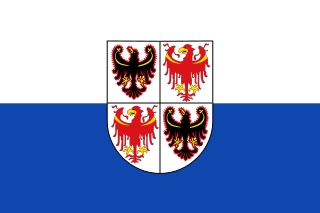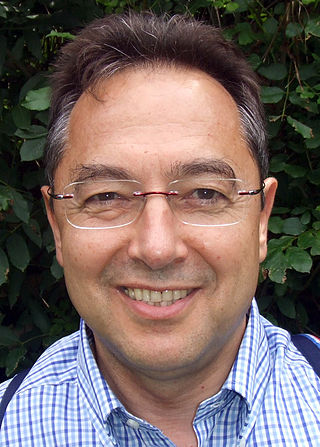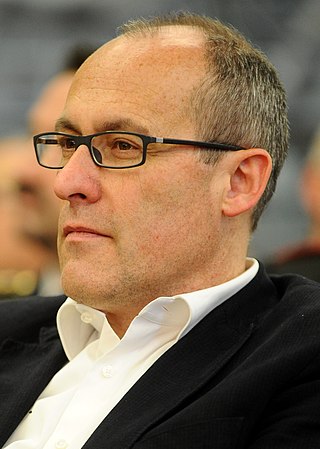
Ladin is a Romance language of the Rhaeto-Romance subgroup, mainly spoken in the Dolomite Mountains in Northern Italy in the provinces of South Tyrol, Trentino, and Belluno, by the Ladin people. It exhibits similarities to Romansh, spoken in Switzerland, as well as Friulian, spoken in north-east Italy.

The South Tyrolean People's Party is a regionalist political party in South Tyrol, an autonomous province with a German-speaking majority in northern Italy.

The Trentino Tyrolean Autonomist Party is a regionalist, autonomist, Christian-democratic and centrist political party in Trentino, Italy. The PATT, heir of the Trentino Tyrolean People's Party, is the unofficial counterpart of the South Tyrolean People's Party (SVP), active in South Tyrol. The two are members of the European People's Party (EPP) and usually contest general and European Parliament elections together.

The Greens are a green and regionalist political party active in South Tyrol, northern Italy. Once the provincial section of the Federation of the Greens, the party is now autonomous and often forms different alliances at the country-level, but both joined Green Europe, a coalition of green parties for the 2019 European Parliament election, and the Greens and Left Alliance, a coalition with Italian Left for the 2022 general election.

The Daisy Civic List was a regionalist, Christian democratic, centrist Italian political party active in Trentino.

Lega Alto Adige–Südtirol, whose official name is Lega Alto Adige per Salvini Premier, is a regionalist political party active in South Tyrol. The party was a "national" section of Lega Nord (LN) from 1991 to 2000 and has been the regional section of Lega per Salvini Premier (LSP) in South Tyrol since 2020.

The Politics of Trentino-Alto Adige/Südtirol takes place in a framework of a parliamentary representative democracy, whereby the President of Regional Government is the head of government, and of a pluriform multi-party system. Executive power is exercised by the Regional Government and Legislative power is vested in both the government and the Regional Council. However, since a constitutional reform in 1972, almost all the executive and legislative powers are devolved to the two provinces of which the region is composed: Trentino and the South Tyrol.
The Party of Independents was a regionalist political party active in South Tyrol from 1972 to 1988.

The Trentino-Alto Adige/Südtirol provincial elections of 2008 took place on 26 October 2008 in South Tyrol and on 9 November in the Trentino. It was the first time since 1946 that elections were not held on the same day.
The Italian general election of 2008 took place on 13–14 April 2008.

Oskar Peterlini, Lecturer at the Free University of Bozen Bolzano, is a Representative of the German-speaking South Tyrolean Minority in South Tyrol, Italy. He was a member of the Italian Senate in the Italian Parliament from 2001 to 2013, Member of the Regional Parliament of Trentino South Tyrol from 1978 to 1998 and its president from 1988–1998. He was also President of the district of the South Tyrolean Unterland of the South Tyrolean People's Party (SVP) from 2001 to 2010.

Italia. Bene Comune was a centre-left political list and electoral alliance in Italy created to stand at the 2013 Italian general election. It de facto ended on 28 April 2013, with PD's new leader Enrico Letta forming a grand coalition cabinet.
The Italian general election of 2013 took place on 24–25 February 2013.

The Trentino-Alto Adige/Südtirol provincial elections of 2013 took place on 27 October 2013.
Solidary Democracy is a Christian-leftist political party in Italy. The party's early leader, Lorenzo Dellai has described it as a "Christian-social" party. DemoS is led by Paolo Ciani; several party members, including Ciani himself, hail from the Community of Sant'Egidio.
The centre-left coalition is a political alliance of political parties in Italy active under several forms and names since 1995, when The Olive Tree was formed under the leadership of Romano Prodi. The centre-left coalition has ruled the country for more than fifteen years between 1996 and 2022; to do so, it had mostly to rely on a big tent that went from the more radical left-wing, which had more weight between 1996 and 2008, to the political centre, which had more weight during the 2010s, and its main parties were also part of grand coalitions and national unity governments.
For the Autonomies is a heterogeneous, mostly centrist, centre-left and regionalist, parliamentary group which has been active, with slightly different names and compositions, in the Italian Senate since 2001.

Michaela Biancofiore is an Italian politician.
The Italian general election of 2018 took place on 4 March 2018.












